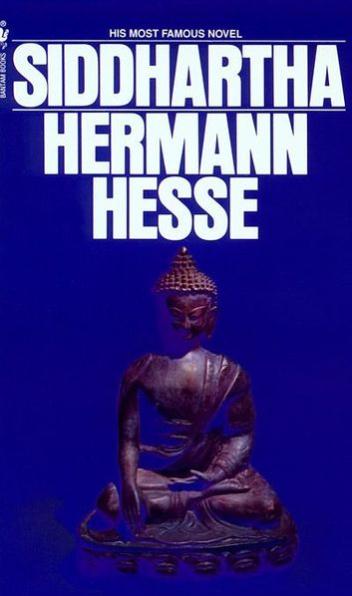- The Good: Classic philosophical and spiritual novel
- The Bad: Not really a novel; be prepared for a distant narrator
- The Literary: A combination of Eastern religions, Jungian archetypes, and Western individualism
Young and restless, Siddhartha is not satisfied with the teachings of his father, a loving and wise brahmin. Together with his friend Govinda, they leave home in the hope of gaining spiritual enlightenment by becoming ascetic Samanas. They renounce all personal possessions, meditate, and fast. With the rise of the enlightened teachings of the Gautama, the pair seek him out to further their spiritual journey.
Siddhartha is a 1922 novel that was the author’s own approach to curing his “sickness with life”. Having been brought up in western Jungian philosophy, Hesse immersed himself in Indian teachings, including the Upanishads and the Bhagavad Gita. In writing the novel, he lived as a recluse, studying the sacred teachings of both Hindu and Buddhist scriptures.
Siddhartha’s search for truth lasts his entire life. Instead of following the Gautama, like his friend Govinda, Siddhartha decides he cannot accept others’ wisdom. Instead, he has a full and rich life with many teachers, including a courtesan, a merchant, and a ferryman.
Siddhartha’s experience, his love of life, anchored by his desire to seek out different ways to live a human life, are his path to enlightenment. Following someone else’s teachings only provides a way through the intellect. Immersing in the carnal pleasures of the world and samsara only provide an insight into emotions. But together, a complete experience allows Siddhartha to see the beauty in opposites and the cycle of time.
One of my favorite quotes from the book summarizes my feelings on this novel. It’s a simple story, told in simple prose. It’s reductive and lacks depth. It’s an unadorned parable.
“Wisdom cannot be imparted. Wisdom that a wise man attempts to impart always sounds like foolishness to someone else… Knowledge can be communicated, but not wisdom. One can find it, live it, do wonders through it, but one cannot communicate and teach it.”
Of course, if you want to learn Hindu and Buddhist teachings, I’d recommend going to the primary sources. If you’re seeking your own path to happiness, your way may not be Siddhartha’s way. Hesse was a protestant German finding his own peace. Recommended for fans of philosophy and 20th century spirituality.
